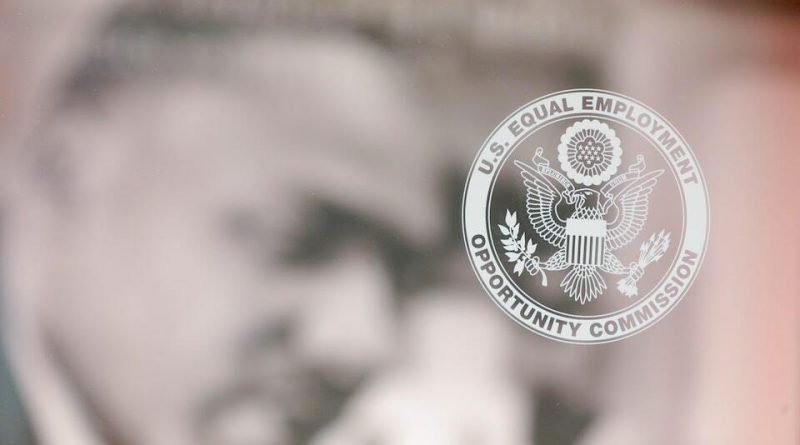Ex-Amazon Worker Challenges EEOC Over Halted Bias Investigations After Trump Directive
A former Amazon delivery driver has taken legal action against the U.S. Equal Employment Opportunity Commission (EEOC), accusing the agency of abandoning its responsibility to investigate workplace discrimination cases following a directive from former President Donald Trump.
Leah Cross filed her lawsuit in Washington, D.C., federal court, alleging that the EEOC unlawfully stopped pursuing cases involving “disparate impact” — a legal concept that addresses policies which, while neutral on the surface, disproportionately harm certain groups of workers. Cross claims the agency’s decision violates federal civil rights laws and undermines decades of progress in fair employment practices.
Background of the Case
The dispute stems from an executive order issued by Trump in April, instructing federal agencies to cease enforcement actions based on disparate impact theory. In response, the EEOC reportedly sent a September memo directing its staff to close all active investigations related to such claims.
That memo led to the closure of numerous cases nationwide — including Cross’s own complaint against Amazon, which alleged that restrictions on bathroom breaks unfairly affected female delivery drivers. Her case was formally closed on September 29.
According to her lawsuit, Cross contends that both Title VII of the Civil Rights Act of 1964 and the Age Discrimination in Employment Act (ADEA) require the EEOC to continue investigating all discrimination complaints, including those rooted in disparate impact.
The EEOC’s press office, currently closed amid a government shutdown, did not immediately comment on the litigation. Amazon also declined to comment directly on the case but emphasized that its delivery operations are designed with employee welfare in mind.
The company stated that drivers receive adequate break time — typically at least one hour per shift — and that delivery routes are planned to ensure access to restroom facilities.
Legal and Political Context
Cross is represented by a team of prominent civil rights attorneys, including Karla Gilbride of the Public Citizen Litigation Group. Gilbride previously served as EEOC General Counsel under President Joe Biden until she was dismissed by Trump earlier this year.
The lawsuit arrives amid a larger political clash over the future of workplace discrimination enforcement. In one of his most controversial post-presidency moves, Trump also removed two Democratic commissioners, Jocelyn Samuels and Charlotte Burrows, from the EEOC — an action that left the five-member commission without a quorum, effectively stalling much of its work. Samuels has since filed a separate lawsuit seeking reinstatement.
Trump’s executive order described disparate impact enforcement as part of a “pernicious movement” that replaces merit-based employment with diversity mandates.
Critics, however, say the move weakens a long-standing tool for exposing systemic bias in employment, housing, and education.
Broader Implications
Legal experts note that disparate impact cases often rely on detailed statistical analysis to show discriminatory outcomes not directly tied to intent. Without access to the EEOC’s investigative resources, individual workers may struggle to obtain the necessary data to prove their claims.
Cross’s lawsuit argues that the EEOC’s September memo is “arbitrary and capricious”, violating the Administrative Procedure Act (APA) because it failed to undergo the required rulemaking process.
The complaint further asserts that the memo is invalid since it was issued when the EEOC lacked a legal quorum.
The lawsuit, Cross v. EEOC (Case No. 25-cv-3702), seeks judicial intervention to compel the agency to resume investigations into disparate impact claims.
If successful, the case could restore a critical avenue for addressing indirect forms of workplace discrimination — and reaffirm the EEOC’s core mission of promoting equality under the law.
Cross’s attorneys argue that enforcing anti-discrimination statutes should remain independent of political shifts. “The law is clear — the EEOC cannot simply stop doing its job because of a political directive,” said one of her lawyers in a statement.
“Workers depend on the commission to ensure fairness and accountability.”
Civil rights advocates say the case could set an important precedent for how future administrations interpret discrimination enforcement. Many organizations have voiced support for Cross’s legal challenge, framing it as a test of the government’s obligation to protect workers from both explicit and implicit bias.
A Turning Point for Workplace Equity
As the legal battle unfolds, attention is shifting toward the EEOC’s next steps — and whether the agency will resume investigations once it regains a quorum.
For now, Cross’s lawsuit stands as a reminder that the principles behind U.S. civil rights laws — fairness, equal opportunity, and accountability — remain as vital as ever.
The case highlights a fundamental question: can agencies charged with enforcing justice truly remain neutral amid political upheaval? Leah Cross’s challenge may soon help define that answer.



